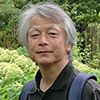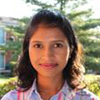Day 1: June 12, 2023
Alone but Not Lonely: Designing an Outgrowth-Promoting Environment for Single Cell Cloning
9:00am EDT / 2:00pm BST / 3:00pm CEST
Doing things quickly has become a paradigm in biopharma development. Simultaneously, in early development, variability is required to extract the most data and increase chances of success. This leads to a demand in high-throughput, automated techniques, and highly skilled professionals. Risk taking and early adoption of new techniques is part of innovation to optimize workflows, especially when projects are highly individual and cannot follow standard routines. In clone development, this includes working with very different host cell lines, customized protocols, and unforeseen circumstances which needs adaptable processes and multifunctional devices.
This webinar will present data on how the CellCelector platform can effectively be used for cell line development, host cell engineering, and cell adaptation and how it was successfully integrated into FyoniBio‘s platform for development of biopharmaceutics.for autologous and allogeneic cell therapies. After viewing this session, participants will have a better understanding of:
- How to identify key development and manufacturing challenges
- Commercial scalability strategies for late-stage cell therapies
- Ways to drive innovation to accelerate the delivery of cell therapies to patients faster
- How, when and why to leverage state-of-the-art facilities
- The importance of end-to-end supply chain management
Speaker:

Vicky Goralczyk, PhD
Director of Cell Line and Bioprocess Development
FyoniBio GmbH
View More Details +
Constant Flow Rate Viral Clearance Study of Planova™ BioEX and S20N Virus Removal Filter and Implementation into an End-to-End continuous Process for mAb Purification
10:00 am EDT / 3:00pm BST / 4:00pm CEST
Virus filtration is located at the end of downstream processing and is a critical step in removing viruses from biopharmaceutical products. However, research and technological developments for integrating virus filtration into continuous processes are still ongoing. One suggested solution is integrating filters after column chromatography processes, but there are challenges such as balancing throughput capacity and flow rate across the system, process pauses affecting virus filter robustness and pressure stability in long duration filtrations. We investigated the filtration behavior and virus removal capability for a monoclonal antibodies (mAb) process in an integrated column chromatography and virus filtration setup under constant flow rate.
Mixed-mode AEX and modified CEX columns were run in-series in a pool-less integrated setup with a 0.0003 m2 Planova BioEX virus filter connected. In order to investigate filter robustness, viral clearance tests for the filter were conducted using the inline spike test method. To address the concern of virus breakthrough, 60-min process pause between mAb solution load and recovery flush was conducted during the virus filtration step.
A mAb solution with quantified host cell protein content that was processed in the integrated setup achieved high HCP reduction and high mAb recovery. Inline virus spike test at 40 LMH constant flux had robust MMV virus reduction. The two column in-series process also showed high virus reduction, with tests for MMV yielding a virus LRV greater than 5 even at a flow rate less than 5 LMH for Planova BioEX filters. Thus, confirmed integrated setup connecting 2 columns and virus filter directly was implemented into the End-to-End continuous process. In the process, batch virus inactivation was executed with auto pH control to clarify the production batch concept. The stable mAb continuous process from perfusion cell culture to virus filtration with high purification and recovery was demonstrated by this process.
Speaker:

Hironobu Shirataki, Ph.D.
Senior Consultant, Scientific Affairs, Global Marketing, Bioprocess Division
Asahi Kasei Medical Co., Ltd.
View More Details +
Cell Line Characterization for Cell Line Selection Using Next-Generation Sequencing and EpiGenetic Sequencing
11am EST / 4pm BST / 5pm CEST
For more than a decade, cell line development processes have been utilizing proteomic approaches and traditional sanger sequencing to characterize cell lines. Next-generation sequencing (NGS) technology has been drastically advanced in the recent 10 years and the characterization of cell lines for biologics production has become available. IGM Biosciences utilizes NGS technology to determine the mutations and integration sites of transgenes. The genotypes of cell lines are evaluated to understand the correlation between cell growth and productivity. In addition, epigenetic sequencing is also explored to determine the expression and stability of different cell lines. We will discuss the advantages of using these sequencing technologies for the consideration of lead clones.
Speaker:

Christina Tsai
Associate Director
IGM Biosciences
View More Details +
Day 2: June 13, 2023
Integrated Downstream Processing Through Continuous Unit Operations and Raw Material Management
9:00am EDT / 2:00pm BST / 3:00pm CEST
An integrated downstream process is needed to efficiently support ever increasing pipeline and demand of mAbs in clinical development. In-spite of several technological advancements, downstream is still a major bottleneck. An average biologic manufacturing process consumes hundreds of raw materials/consumables. Herein, we will present an integrated continuous downstream purification process that utilizes a novel approach to connect several chromatography steps along with use of single use powder dispensing and hydrated buffers to improve flexibility, throughout and cost of goods. Additionally, we demonstrated the use of novel additives and resins to increase impurity clearance to meet quality while reducing process time.
Speaker:

Pawanthi Buwaneka, PhD
Research Scientist
Avantor
View More Details +
Productivity Improvement in N-stage Perfusion Cell Culture with Asahi Kasei Microfilter
10:00 am EDT / 3:00pm BST / 4:00pm CEST
Perfusion cell culture is advantageous to produce unstable target products compared to fed-batch processes due to the continuous recovery of target products. It is also attracting renewed attention because of its reduced manufacturing footprint and low initial investment due to the ability to produce target products in a smaller bioreactor size.
On the other hand, perfusion cell culture consumes more medium compared to fed-batch process, resulting in higher medium cost.
One of the important goals in the process development of N-stage perfusion cell culture is to improve the productivity of target products. Optimization of medium composition, cell retention device selection, and filtration conditions are being actively discussed to maximize the productivity.
In this presentation, we will focus on product sieving and membrane clogging that affect the recovery rate of target products with hollow fiber format cell retention devices, and explain how Asahi Kasei microfilter (MF) contributes to the improvement of these factors. We will also present the evaluation result on optimal combinations of MF and filtration conditions for N-stage perfusion cell culture to maximize product sieving and minimize membrane clogging based on the relationship between cell density and/or shear at the membrane surface.
Speaker:

Konstantin Agolli
Senior Product Manager & BioOptimal TFF Specialist
Asahi Kasei Bioprocess Europe S.A./N.V.
View More Details +
Engineering Essential Amino Acid Biosynthesis in Mammalian Cells
11am EST / 4pm BST / 5pm CEST
Session Description Coming Soon!
Speaker:

Julie Trolle
Postdoctoral Fellow
NYU Langone Health
View More Details +






